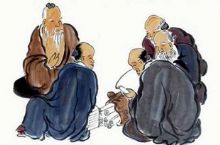

When Wang Jianzhong, a 43-year-old employee at a Beijing-based State-owned construction company, read in the news that in the year 2030, China's retirement age may be extended from 60 to 65, he became quite worried.
That would place him among the first to work the extra five years. Wang, understandably, is less than enthused by the idea.
"I had planned to travel a lot to enjoy my retirement. But the new plan will leave me with fewer options because I might not be that healthy at that time. In addition, I will have to pay the social pension insurance for five more years to enjoy the benefits," Wang said.
When the plan was first published as part of a draft reform document by Tsinghua University, many people in Wang's position were quick to complain, and a nationwide debate over pension plans was soon in full swing.
But given the economic and demographic realities facing China, delayed retirement ages may well be inevitable.
"Delays to retirement ages are not only happening in China. It is a global trend," Li Jianmin, a professor in the population and development research center at Nankai University, told the Global Times. "Japanese people are retiring at 65 and people from some European countries are retiring at 67," he said, adding that the shrinking labor force due to policies like family planning has made the pension problem a tougher issue for China.
Young paying for old
Many nations around the world are grappling with issues associated with aging populations. For most, the only way to deal with the increased costs of pensions and medical care has been to extend the retirement age, thus increasing the ratio of workers to retirees.
In China, things have been complicated by reforms to the pension system in 1992.
From 1949 to 1992, all the pension costs of urban workers, most of whom were working at State-owned companies, were paid by the companies and companies alone, leaving employees free of obligation to contribute to pension funds from their own pockets.
However, when State-owned companies were reduced in number in the 1990s, reforms to the pension system became necessary to protect employee benefits.
The new version of the pension system required that companies pay 20 percent of workers' salaries to the government to provide for pensions, while the employees themselves were ordered to pay 8 percent.
However, because many workers only began making these payments when they were already well into middle age, they didn't have time to contribute as much as younger workers. The only way to make up for the shortfall was by diverting pension funds from younger workers to the accounts of retired workers, creating significant debt that is being held by the younger generation.
"This debt was inevitable. With more and more people without sufficient insurance retiring from their positions, the debt will increase," Li said, adding that delaying the retirement age will relieve the heavy financial burden of these retirement pensions.
Zheng Bingwen, director of the Center for International Social Security Studies in the Chinese Academy of Social Sciences (CASS), claimed that the debt was as much as 2,200 billion yuan ($359 billion) in 2011. Another CASS research project estimated that debts in the pension funds will grow beyond the government's capability to pay off in 2015 at the earliest.
Copyright ©1999-2018
Chinanews.com. All rights reserved.
Reproduction in whole or in part without permission is prohibited.